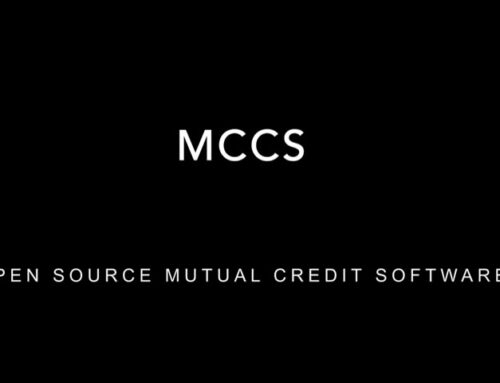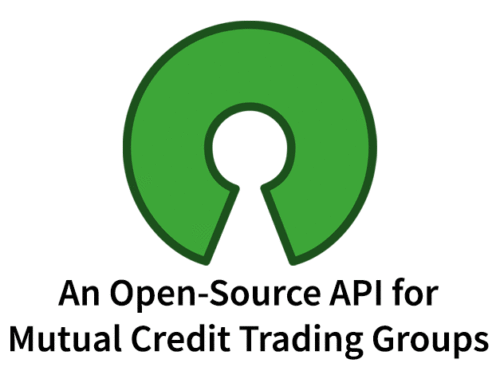Despite the bad name economics has earned through the cruelties and negative impacts of the last few centuries of rampant expansionism, it seems clear that the messaging system facilitated by markets is fundamental to what we require from our civilisation – and that we cannot simply junk these without abandoning much that we value.
We have to accept that economic activity is at the core of our capacity to have a recognisable civilisation, at least until we can evolve further, to a gift economy of abundance.
In order to transcend capitalism, though, starting from where we are, we must fundamentally change the way that money, markets – and thus the implicit incentives that drive overall outcomes – work.
CORE INTENT
From the Transcender Manifesto:
We seek not to destroy capitalism, nor to reform it, but to transcend it – to consciously and rapidly evolve past it. We acknowledge its current hegemony, and accept that this arose as a result of its dynamism, adaptability, and ability to offer value to those who built it (while also recognising with horror its inherent violence towards the people and places which it so forcibly transformed). But the law of diminishing returns has set in, and the future negatives now dangerously and imminently outweigh any historic positives.
We will enact and intensify social relations that produce a human culture which supports the abundance of the biosphere, in confidence that this will require human flourishing that transcends what is considered possible under capitalism.
THE PARADOXICAL REQUIREMENT
If we are to take this intent seriously, then we must face, head-on – and resolve – a harsh paradox: that in order for new social relations to change the self-destructive path of capitalist world culture, they must be adopted at a faster rate than capitalism grows – we must accept that we are required to out-grow the most growth-oriented human invention to date, on the basis of a new and developing culture that consciously rejects using economic growth as a positive feedback loop.
This is a tall order.
In the first instance, capitalism must be acknowledged to be an astonishing human invention – incredibly adaptable, utterly amoral, utterly short-termist, operating always on the basis of giving those who push it forwards a speedy return. It has been hegemonic for centuries, and many aspects of its operation have become deeply embedded in our culture, to the extent that they are perhaps more real than physics for many people (despite being entirely contingent).
There are three broad options in the face of the civilisation-threatening end-game of such a virulent meme:
- Violent revolution – abrupt change at the centre. Historical examples suggest that this is ineffective as regards systemic change. Since the capitalist system is now a global machine, revolution would have to succeed on a significant scale – an unimaginable prospect given that the idea currently has so little public support. Further, there is no believable plan in place to support a civilisation of 7 billion plus humans if we were to overthrow capitalism. That is even if we ignore what people have to become to fight a revolution and win. If you are thinking about some peaceful transitions that took place as the Iron Curtain fell – which were described in terms such as ‘the Velvet Revolution’ – don’t let this confuse you; these were not revolutions against capitalism, but surrenders to it: a whole society giving up on a defeated attempt at a violent transition to what was little more than a theory.
- Reform – the appeal to reason. The idea here would be to convince capitalist cultures that it is imperative to change the fundamentals of their model if we are to avoid collapse. On the face of it, this should have a chance – democracy is the accepted world governance standard, and all it takes is enough of us to vote for change, and we’ll get it, right? Sadly, this is dangerous naivety. Economic systems are only ever the means whereby power structures reproduce themselves – economics is not the power structure itself. Capitalism is not the be-all and end-all for the global elites – it is their enduring power they are really concerned about. Many of them are already pondering a post-crash world and various versions of neo-feudalism – with them as the new nobility. These elites, it seems to me, are hard for us to understand because they do something strange: while the rest of us oscillate between the short term (how do I pay the rent?) and the long term (how do we deal with climate change?), it seems that they think mostly in the medium term – about the power their children and grandchildren will inherit. This makes them discount long-term threats, while playing deeper financial games than we do. We can have no real dialogue with people who think this way – and even if we wished to they do not act as a class (in part because they rely upon the mystification of power provided by mainstream economics to the extent that many of them are unaware of their own reality). I think we can discount reformism as a busted flush – see Piketty.
- Transcending capitalism. This third option seems weak by comparison at first – but I think it is the only safe way forward. It consists in: not fighting capitalism (unless absolutely necessary), not reforming it (because the history of reforms is that capital absorbs them and sells them back to us as the new engine of growth), but building better, more humane and healthy systems and structures in the cracks and gaping holes capitalism has ignored or created. What is interesting is to consider how capitalism destroyed feudalism. There was no war, no revolution, no reform (although wars, revolutions and reforms accompanied the change). Capitalism didn’t even know that it was capitalism until long after it had won. How did this happen? Through the accretion of new cultural modes, tricks, habits and tools that were developed, not with any intent to undermine feudalism, but to make things work for people in the places feudalism could not reach. To provide real value to people where feudalism was ineffective, or simply uninterested. To enable flows of human desire satisfaction and value creation that feudalism could not or would not do – or even conceive of. Through this process, it built a suite of cultural structures and stories that people voted for ‘with their feet’ – including the feudal elites; in the end, this is the approach that leads to peaceful revolution – when we can simply demonstrate a working social system that does better for everyone. For those who can bear to read speculative fiction, Cory Doctorow has written a rather good novel – Walkaway – that puts flesh on this approach.
If we are to succeed, I believe we have to understand this third option. But we haven’t time to wait for a few centuries worth of accretion of random experimental outcomes (the normal evolutionary process). So we have to engage in conscious cultural evolution.
This approach – which I am calling Transcender Culture – is nascent, untried, and chooses as its success metric a complex criterion: the carrying capacity of the biosphere – which is unlikely to align with simplistic measures of economic activity, at least not before deep cultural transformation.
So we will need to be careful, wise, determined and adaptable. Above all, we will need to take people – ordinary people – very seriously indeed. We cannot achieve our aim by expecting that a majority of the world will read things like this post, and become conscious cultural evolutionaries. Instead, we must expect that most people will be people – will care about the things that humans care about (while remembering that the things that capitalism tells us they care about are mostly a distortion) We must meet them there, and demonstrate a world that serves them well; helps them live in sufficiency and security with dignity, believe that their children will have decent life chances, experience positive community, connect with place, live in societies where care and trust are operational.
CONSIDERATIONS
In order to achieve this, if we are to create some sound building blocks for a new economy, those building blocks have to work at least as well as, and reasonably quickly, better than, the existing system, for the participants. Hoping that people will engage in something economically non-productive, in a context completely dominated by deliberately scarce money, rapacious corporations and the culture that surrounds these, is a fool’s errand.
I suggest we have to:
- Look for the gaps where real and deep human desires and characteristics are ignored or suppressed by capitalism. These are not hard to identify, and they are at the base of what makes us human, Capitalism has had to fight hard to suppress them, and cannot eliminate them. Dignity, Love and Care, Autonomy-in-community, Place, Mutuality, Respect for ecosystems, Education for life – satisfying any of these in our lives entails working against the grain of our culture. People will welcome and seek out modes of making a living that embody these more, on one proviso – that ‘making a living’ is not made harder: bringing one’s children up in security will always trump less immediate needs, and the current model will always seem the most obvious in times of stress.
- Find ways to make the provision and satisfaction of these needs have an economic value. This seems a cringe-making thing to say – it sounds as if I am proposing turning love into money. But this response is only an indication of how deeply the made-up and outdated stories around debt-based, monopoly issue, inherently scarce money have been incorporated into our psyches. Economy is NOT money. Economy is the management of social resources and sufficiency for well-being. Our new systems (including money systems) must incorporate ways of making love, trust, dignity provide more well-being – on a full-spectrum that explicitly includes what we would now describe as economic security.
- Consciously design and evolve these on a continuous basis. Capitalism has proved its capacity to adapt and incorporate new ideas at a rapid pace. We need to move faster, while assessing proposals on a broader spectrum.
- Carefully avoid head-to-head battles with capitalism (for as long as this is possible). We can’t do capitalism better than capitalists (we shouldn’t try to) – and certainly can’t compete with them head-on in spaces they already define and own. This will waste our energies and destroy our hopes (this is what happened with local commodity currency experiments, imho). We need to find spaces that capitalism is uninterested in, and there build strong, self-sustaining, dynamic, economically-viable institutions, cultural understandings, mutual assurance networks, social relations.
- Further, understand that we can use capitalism’s short-termism against it. We must design and use investment platforms that are happy to offer attractive rates of return to capital (this is not a pipe-dream. Chris Cook’s nondominium structure is able to offer attractive one-off returns while ratcheting assets and capacity into common control). Again, this sounds as if I am proposing feeding capital. In fact what I am suggesting is doing to capitalism just what it did to feudalism – use its assets as the fuel to build a new system. If that system is attractive to people, then for a while, it will – must – outgrow capitalism, and so provide ‘returns on investment’. The trick is to pay those returns in kind – in the products of the new way of working, rather than in fiat currency. In this way we can gradually hollow out the debt, scarcity and monopoly-framed money that underpins so many destructive incentives.
- Carefully building every single thing we do to protect the value we create from being re-absorbed by capitalism. Building societies are a perfect example. Insufficiently protected, having forgotten the purpose of their existence, they were swept away in a wave of short-termist destruction. We need to design all our institutions, all our mechanics, to operate on a ratcheting basis – once value has entered the new economy, it can’t be taken out (in just such a way capitalism took all the land from feudalists and commoners – buy buying or stealing or legislating it out of primogeniture inheritance, and putting it on the market). It is worse than pointless to build things that can be bought back into capitalism – like Mickey Mouse chopping the broom in half in the ‘Sorcerer’s Apprentice’ scene from Fantasia. Please don’t do it! Asset locks use another plank of capitalism against it – its requirement for strong property law.
- Build all our systems with Elinor Ostrom’s commons governance married with the best that new democratic thinking has come up with (Deliberative democracy, Viable Systems, Sociocracy – there is so much good stuff that gets only marginal attention).
- Understand that we are building human-scale systems, that cannot and should not ‘scale’ in the way that we have become used to considering a fundamental requirement for ‘success’. Anything that scales the way capitalism does cannot support the list of humane and life-centred drives that I listed above. We must build a culture that can do something new – can be local and at the same time support and build the complex value chains that make our civilisation possible (more, we will need to make these value chains work in new, non-extractive ways that do not replicate the imperialist and externality mindset of capitalism). This will require federation, subsidiarity, Viable Systems thinking and more to be made operational.
For me, right now, building a viable and economically-attractive mutual credit system is a key plank of this strategy – the place I feel I can be most useful.
Mutual Credit is a money system that provides just enough money to match and develop the capacities of the community using it, without enforced debt or interest, and governed democratically by that community. It dis-incentivises hoarding and builds trust and inter-dependency. Mutual credit cannot be ‘cashed out’ into debt-based commodity currency.
The Open Credit Network is developing a UK mutual credit network, with support from many of the leading practitioners and thinkers in this domain. Register your Expressions of Interest here. The post image comes courtesy of CreditCommons – follow the link for the Credit Commons whitepaper – a description of the protocol that can support a global network of communities of trust trading on the basis of Mutual Credit.
 A Director at Lowimpact.org and NonCorporate.org, Dil Green was an architect and builder for 30 years before re-focusing on the digital sphere, on the basis that the energy and possibility of these technologies represents the best hope for building a systemic shift in human culture. With a wider interest in mutual organisational structures, Dil blogs at digital-anthropology and is currently building the Open Credit Network alongside Dave Darby and Oliver Sylvester-Bradley.
A Director at Lowimpact.org and NonCorporate.org, Dil Green was an architect and builder for 30 years before re-focusing on the digital sphere, on the basis that the energy and possibility of these technologies represents the best hope for building a systemic shift in human culture. With a wider interest in mutual organisational structures, Dil blogs at digital-anthropology and is currently building the Open Credit Network alongside Dave Darby and Oliver Sylvester-Bradley.





